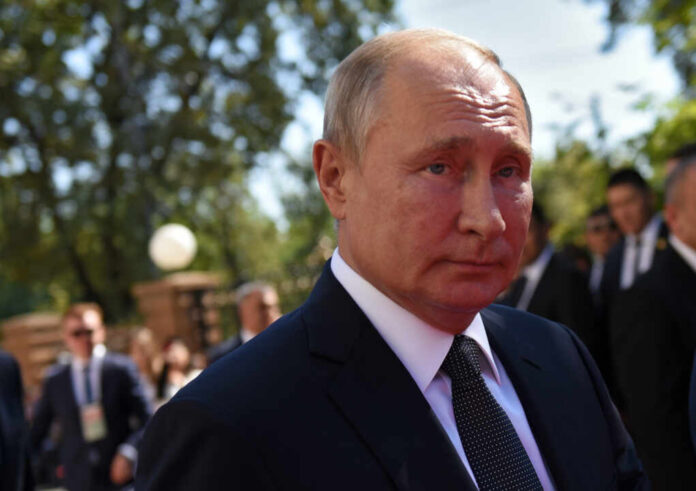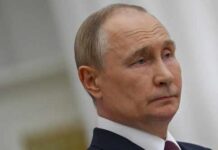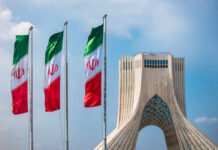
A new confrontation between Russia and France over the detention of a Russian-linked oil tanker raises tensions in Europe.
Story Highlights
- France detains a Russian oil tanker, Boracay, citing sanctions enforcement.
- Putin calls the detention an act of “piracy,” escalating diplomatic tensions.
- The incident is tied to broader security concerns, including drone incursions.
- The Boracay has resumed its voyage, with legal proceedings pending in France.
France’s Assertive Action Against Shadow Fleet
On September 27-28, 2025, French authorities detained the Boracay, a Russian-linked oil tanker, near Brest, France. The vessel is part of Russia’s “shadow fleet,” which operates to evade Western sanctions. The French Navy intervened as part of an effort to enforce these sanctions, arguing that such actions are necessary to undermine Russia’s financial support for its ongoing conflict in Ukraine.
French President Emmanuel Macron has defended the detention, calling for intensified European efforts against such vessels. The Boracay’s captain and first mate, both Chinese nationals, were arrested but later released, allowing the tanker to continue its journey towards India. This move by France highlights its commitment to disrupting Russia’s shadow fleet and enforcing international sanctions.
Watch: Putin FUMES as France Seizes Russian ‘Shadow Fleet’ Tanker Boracay; Russia THREATENS Big Response
Putin’s Outrage and Threat of Retaliation
In response to the detention, Russian President Vladimir Putin condemned France’s actions, labeling them as “piracy.” This rhetoric underscores the tension between Russia and Europe, as Putin threatens a significant response to what he perceives as an unlawful aggression against Russian interests. The incident also raises questions about possible Russian retaliation and the potential for further maritime confrontations in the region.
Putin’s denouncement occurs amidst broader security concerns in Europe, including recent drone incursions over Denmark. These incidents, suspected to be linked to Russian operations, add another layer of complexity to the geopolitical landscape, as European nations ramp up their scrutiny of Russian activities.
Putin calls detention of Russia-linked tanker by France ‘piracy’ Russian President Vladimir Putin on Thursday slammed the detention of a Russia-linked oil …
– via https://t.co/DnUlcuNlrv— Planet Today (@PlanetTodayNews) October 3, 2025
The Broader Implications for Global Security
The Boracay incident exemplifies the geopolitical risks associated with enforcing sanctions on Russian oil exports. While France’s decisive action signals a shift towards more aggressive maritime interdiction, it also poses a risk of escalating tensions between Russia and the European Union. This incident not only affects diplomatic relations but also has ramifications for global shipping and energy markets, potentially leading to disruptions in oil supply chains.
As legal proceedings against the Boracay’s captain are set to begin in France, the international community remains watchful of Russia’s next steps. The situation serves as a reminder of the challenges faced in enforcing sanctions against a nation adept at evasion tactics. It also highlights the need for coordinated international efforts to address security threats that extend beyond traditional military confrontations.
Sources:
Russia-linked tanker stopped by France resumes voyage – Times of India

























